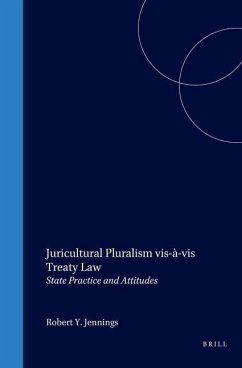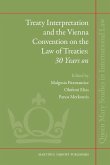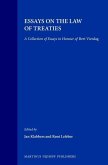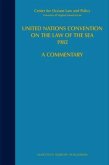The way in which 'legal' culture has been defined in the past has limited comparative processes to law itself. The author proposes a new term, 'juriculture', defined as 'the axiological and behavioural formula which pertains to the law.' This new definition provides a comparative tool which focuses on ontological and epistemological bases of law and concomitant legal theories which are distilled from these philosophical bases, in addition to primary and secondary rules, and written laws. This book tackles the crucial issue of how divergent individual, State, and Regional cultures impact the international legal system in the law and State practice vis-à-vis treaty interpretation and reservations. An empirical analysis of cases in the Iran-U.S. Claims Tribunal and six human rights' treaties demonstrate that beyond weak juricultural pluralism, which the international legal system provides for, there is also strong juricultural pluralism, which is not envisaged by the system. This highlights the tension between universality and diversity in both primary and secondary rules, and international law itself. This book is a must for those interested in human rights, treaty law, culture, and legal theory.
Hinweis: Dieser Artikel kann nur an eine deutsche Lieferadresse ausgeliefert werden.
Hinweis: Dieser Artikel kann nur an eine deutsche Lieferadresse ausgeliefert werden.








